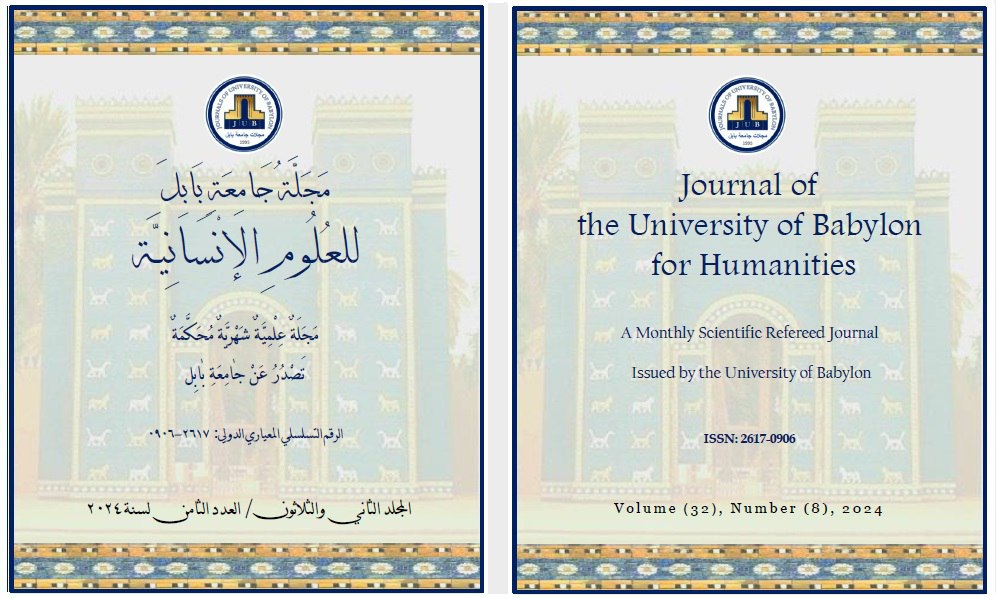The Iraqi Novel after 2003 and the Issue of Migration and Displacement: Sinan Intiwan’s Novels as an Example
Main Article Content
Abstract
After 2003, sectarian and political violence-both internal and external-as well as the consequences of these conflicts-such as the growth of violence, the intensification of waves of internal and external migration, and the issues facing Iraqi society abroad-were all reflected in Iraqi novels. Research is important since it aims to add to the body of knowledge in the subject of Iraqi new studies. Following 2003, and the significant events that marked the political, social, and historical shifts that year in Iraq's modern history. The goal of the study is to shed light on how narratives about migration and diaspora are produced, as well as how these phenomena affect Iraqi society, which was compelled to migrate and live abroad, either freely or involuntarily, as well as to shed light on the problem of people trying to find their identity in different communities. Throughout the research, the researcher employed the descriptive analytical method to analyze the novels, taking into account the diaspora that resulted from alienation. The research arrived at several conclusions through narrative analysis, the most significant of which is that Iraq's wars, which have been ongoing since the last quarter of the 20th century, have had an impact on immigration abroad because it is, in fact, a path to salvation, particularly for the country's oppressed minorities. Regarding the issues facing the diaspora, Iraqi society He struggled greatly in the diaspora because to the problem of social relationships inside the community and with its surroundings, as well as among its members, all played a part in their quest for their missing identity.
Article Details

This work is licensed under a Creative Commons Attribution 4.0 International License.

